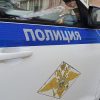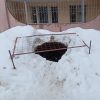 Christian Zurita addresses the public at the final event of his presidential campaign. Credit: MARTIN BERNETTI/AFP
Christian Zurita addresses the public at the final event of his presidential campaign. Credit: MARTIN BERNETTI/AFP
Ecuadorian State Attorney Victor Hugo Alcivar was driving home when gunmen intercepted his car and shot him three times through the window.
He miraculously survived the attack last May, but a friend, with whom he was less fortunate.
p>
“I still don’t know how I managed it,” he told The Telegraph.
In the general election Ecuador was dominated by lawlessness and murder. Ahead of Sunday's presidential and parliamentary elections, eight political candidates were assassinated, three survived assassination attempts, and seven received death threats.
Mr. Alcivar, who has only recently returned to work, believes he was targeted for gangsters in the northern city of Santo Domingo. He said that judges and prosecutors are often approached by organized crime groups offering bribes.
“The danger comes when you refuse,” he said.
Targeted killings have become commonplace in Ecuador in recent years as organized crime groups vie for influence over justice, politics and the state, causing unrest in the country.
Eight prosecutors and two judges have been killed in the past two years, and dozens more are under threat .
On Saturday, the mayor of the city of La Libertad said he survived an assassination attempt after gunmen fired 30 bullets into his car.
And Otto Sonnenholzner, presidential candidate, said that on Saturday outside a restaurant where he and his family dined, there was a shootout.
But it was the assassination of presidential candidate Fernando Villavicencio just over a week ago that brought Ecuador into a new state of emergency.

“Killings of this type serve as a punishment, as well as a warning to others of what can happen to them if they do not comply,” said Mr. Alcivar.
When Villavicencio, an outspoken critic of the state’s ties to organized crime , was shot after leaving an event in the capital Quito on August 10, the message was clear.
“It shows that criminals have power,” said Carolina Portaluppi, a political analyst. «They use guns to silence their enemies and punish them.»
Ecuador, sandwiched between Colombia and Peru, where the world's highest level of cocaine production, has become a playground for foreign drug mafias seeking to export cocaine from their countries. shores of the United States and Europe.
Ecuadorian police recorded 3,568 violent deaths in the first six months of this year, up from the 2,042 recorded in the same period in 2022.
The epicenter of violence in the country is the coastal city of Guayaquil, where last Monday, three people, including two children, were killed in a shootout between gangs in the south of the city, and seven passers-by were injured.
The next day, a 16-year-old boy was shot dead near his school. It was just one of 20 murders committed on Tuesday.
Then on Wednesday, the city center was evacuated due to a suspected car bomb. Special forces also made a controlled explosion at the bus station of the city. Both were false alarms.
Once known for its long waterfront and quirky historic district, Guayaquil is now a city on the brink of survival in a country that is fighting against powerful criminal gangs.
Along with murders, the number of robberies has skyrocketed, and fear in Guayaquil palpable.
Bars and restaurants close early. Metal detectors have been installed in shopping malls. Newsstands and pharmacies no longer let customers through — purchases are made through slots in metal shutters.
 A soldier stands guard at the Duran checkpoint. Credit: Martin Mejia/AP
A soldier stands guard at the Duran checkpoint. Credit: Martin Mejia/AP
Angela Molina, a 46-year-old mother of two who works at a bank, says she and her neighbors are living under self-imposed curfews to keep their families safe.< /p>
“Why would someone go out with their family? You will be robbed, and if you leave your valuables at home, they will kill you because they are annoyed that they have nothing to steal,” she said.
“If you are lucky and do not die immediately, you will be taken to the hospital . But the hospitals have no equipment, no doctors, no medicine, so you're going to die anyway.»
The police, she added, «would never investigate who killed you, because they're probably protecting people who robbed you in the first place.”
“And to top it off? None of the candidates have real solutions. They just want to line their pockets.”
President Guillermo Lasso responded by declaring a series of states of emergency.
In April, he issued a decree allowing civilians to carry weapons in the streets and public places. Experts say this only exacerbated the chaos.
Thousands of police and soldiers were deployed to protect polling stations.
But Ecuadorians have lost faith in their political leaders and those who were supposed to protect them .
 Candidate Andrea Gonzalez wearing a bulletproof vest during the final campaign rally. Photo: HENRY ROMERO/REUTERS
Candidate Andrea Gonzalez wearing a bulletproof vest during the final campaign rally. Photo: HENRY ROMERO/REUTERS
Sunday's vote was initiated after Lasso dissolved parliament to avoid impeachment for embezzlement. In April, charges of corruption were also filed against his predecessor, Lenin Moreno, who continues to protest his innocence.
Prior to his assassination, presidential candidate Villavicencio revealed that at least 20 candidates who ran on Sunday were under investigation for direct links to drug trafficking. Leaked intelligence reports have also revealed how members of the security forces are involved in the cocaine trade, supplying weapons to some of the country's most violent gangs.
Such corruption is slowly eroding the state's legitimacy and fueling accusations that Ecuador has become drug addicted.
p>
“The Ecuadorian state is incapable of serving and protecting its citizens,” Portaluppi, an analyst, said. “On the contrary, it encourages corruption and organized crime.”
In Guayaquil's northwestern region of Mount Sinai, gangs control their territory through extortion and murder. Political candidates had to pay dues in order to be able to campaign on their territory. Here, people only speak in whispers.
«The gang rules here, not the government»
“The law is silence,” said one of the residents, who asked not to be named for fear of reprisals. “I don’t hear anything, I don’t say anything,” she said. “The gang rules here, not the government.”
A resident mother of three explained how she pulled her children out of school.
“At school, they get recruited by gangs. I can keep them safe at home,” she said.
In Mount Sinai, families pay two dollars a week to a local gang — a large sum of money for households living in extreme poverty and dependent on the informal sector for work. Lions, the symbol of the local Los Fatales gang, are depicted on many of the houses here.
Guayaquil's underworld is complex. Much of the recent violence is the result of a power vacuum following the assassination of Jorge Zambrano, nicknamed «Raskinha» or «HL», the leader of Los Choneros, in December 2020.
Founded in the 1990s, Los Choneros has become the largest and most Ecuador's most dangerous gang, but the death of the JL escalated the feud, and several powerful splinter groups have since emerged.
Los Choneros and his rivals are vying for territory and control of the trafficking routes he runs for cartels from Mexico and Colombia, as well as mafias in Italy, Albania and other Eastern European countries. Much of the bloody conflict has taken place in prisons, where at least 400 prisoners have died since 2021.
 The Movimiento Revolucion Ciudadana party promised its supporters to regain control of the gangs. Photo: HENRY ROMERO/REUTERS
The Movimiento Revolucion Ciudadana party promised its supporters to regain control of the gangs. Photo: HENRY ROMERO/REUTERS
The assassination of Villavicencio has opened the presidential race wide.
His last-minute replacement, 53-year-old journalist Cristian Surita, will face seven other candidates, including a left-wing leader, a former vice president, an indigenous chief and a former army sniper Nicknamed «Rambo».
Late Thursday, a convoy of hundreds of vehicles made their way through southern Guayaquil, honking in support of Luisa Gonzalez, the leader.
Speaking at his last rally before Sunday by vote, she promised her supporters that she would take back control of the gangs, stating that Ecuador needed an iron fist and promising to improve education and job opportunities for young people.
While she spoke, the crowd was nervous. Many took cover several times as the fireworks were mistaken for gunfire.
“I will vote with fear,” said teacher Margarita Torres, 52, who came to hear from Ms. Gonzalez. «I have no expectations and hopes, but democracy must prevail.»

























































Свежие комментарии